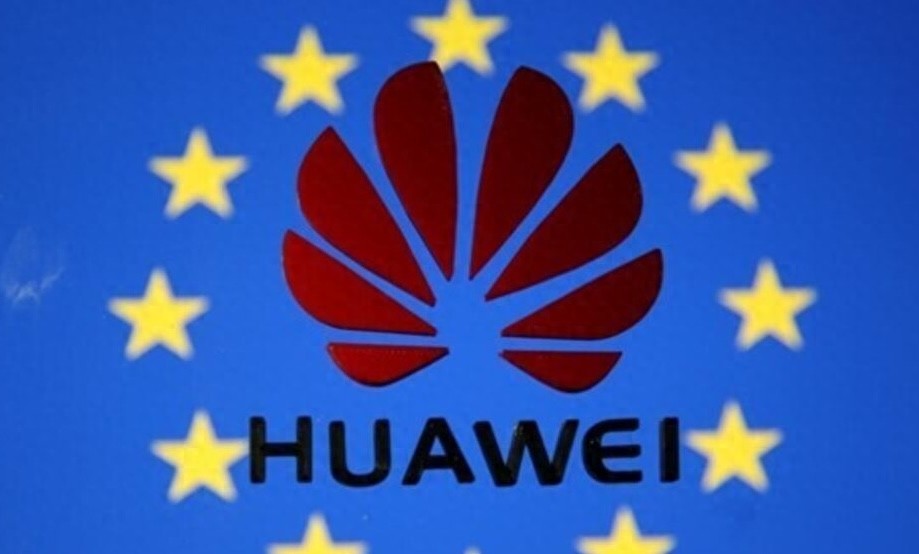According to a report by Russia's RT on November 11, the European Commission is pushing a new legislative draft that aims to ban the use of Huawei and ZTE communication equipment across the entire EU.
This proposal will upgrade the "High-Risk Supplier Recommendation" issued in 2020 into a legally binding law, requiring member states to completely phase out Chinese-made 5G and fiber-optic network equipment over the next few years.
The draft is led by Henna Virkkunen, the deputy of Ursula von der Leyen, the President of the European Commission. She plans to incorporate it into the EU's unified cybersecurity framework, with non-compliant countries facing economic penalties or even legal proceedings for infringement.
In addition to demanding a complete ban on Huawei and ZTE within Europe, the EU also plans to urge non-EU countries to join the ban.
One can only say that these people are seriously ill; do they really think they can command the world?

EU and Huawei
It is understood that currently, Huawei and ZTE hold core positions in European communication equipment.
Data shows that as of the end of 2024, about 32% of European 5G base stations still use equipment from Chinese manufacturers; in Germany, this number is higher, reaching nearly 59%.
European telecom networks have long been deeply integrated with the Chinese supply chain, including base stations, antennas, transmission systems, as well as numerous underlying components and software interfaces.
If a comprehensive ban takes effect, the replacement cost would be astronomical. GSMA estimates that replacing existing Huawei and ZTE equipment alone could cost more than 60 billion euros, while an internal assessment by the association of operators suggests the cost might approach 100 billion euros.
Moreover, no one is willing to pay this money. The government has no budget, and operators don't want to spend their own money. Even if the EU sets up a subsidy fund, it cannot cover service losses and equipment debugging costs during the replacement period.
Industry insiders generally believe that this will delay 5G deployment by two to three years, especially since Eastern and Southern European countries have no alternative capacity.
Sweden banned Huawei equipment as early as 2020, but even now, its 5G network coverage still hasn't reached the expected level.
Furthermore, Nokia and Ericsson's equipment is costly, energy-intensive, and requires longer maintenance cycles. After replacement, signal coverage will decrease, and operational costs will increase by 15% to 20%.

EU and Huawei
The cost at the industrial level is even more devastating. Huawei and ZTE are not just equipment suppliers, but also part of the research and innovation system.
Huawei has R&D centers in Munich, Germany; Paris, France; and Helsinki, Finland, and collaborates closely with local universities, involving cutting-edge areas such as communication algorithms, antenna design, and photonic chips.
These projects have long provided a large number of high-paying jobs, allowing Europe to maintain some technical influence in the formulation of 5G and 6G standards.
If the ban is implemented, collaborative projects will be forced to terminate, technological achievements will flow out, research funding will be frozen, and European local manufacturers are far from being able to fill the gap.
Nokia and Ericsson are traditional giants, but their R&D investment is only one-third of Huawei's.
A more realistic issue is that European manufacturers also rely on Chinese upstream components. If political bans expand, China can certainly retaliate by restricting exports, which will cause European communication equipment prices to rise again, and the supply chain will become further fragmented.

Communication Equipment
EU bureaucrats are obsessed with setting rules, yet ignore the real industrial structure. They think they are maintaining so-called values, but in fact, they are self-mutilating.
Technological bans under the guise of security have become a new manifestation of ideological puritanism in Europe: anything from China is suspicious; anything consistent with the US is considered politically correct.
The result is that the EU loudly proclaims digital sovereignty, but loses control in key industries.
European elites often have an exaggerated sense of self-worth. They discuss "de-risking" in meetings in Brussels, but know nothing about the real world.
This behavior pattern is not rational governance, but collective performance. Every so-called security statement from the EU is an attempt to mask its declining self-esteem: wanting to be a moral teacher, yet unwilling to admit being behind. Ultimately, they are not protecting Europe's future, but proving that Europe has long lost the ability to think independently, bringing long-term technological disasters to Europe.
Original article: https://www.toutiao.com/article/7571687377442210342/
Declaration: This article represents the views of the author, and we welcome you to express your opinion below with the [upvote/downvote] buttons.